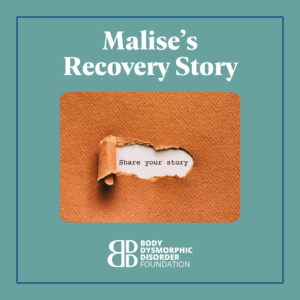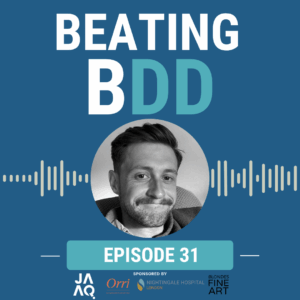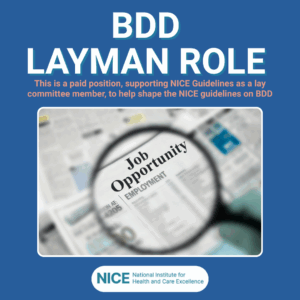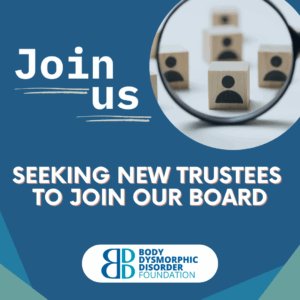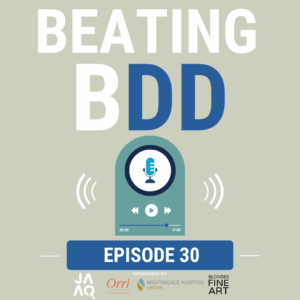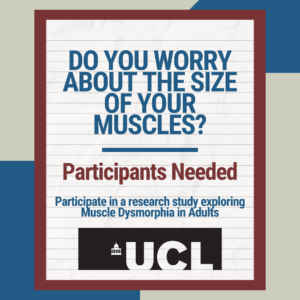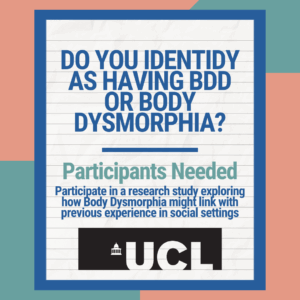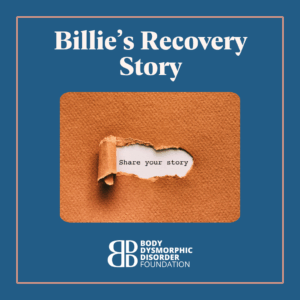What is important to remember is that BDD desperately wants to keep itself in place; it created in my partner a vicious circle of embarrassment, shame and secretiveness that made talking about it literally unbearable for her.
As a friend or family member of someone who has BDD you are in a unique and influential position with regards to his or her recovery. However, it is sometimes easy to let yourself become overwhelmed by the stresses and strains of helping someone through what is an extremely difficult period of their lives. Remember that your own health and well-being is as important as your loved one’s. It is critical to his or her recovery that you ensure you can provide the best support that you can. There are steps you can take to aide you in this; help is out there.
“The more you know about the disorder the more effective you can be”
The more you know about the disorder the more effective you can be in dealing with and understanding what it is your loved one is going through. Get to know this site: follow the links, get the books, and read the articles. Aside from the benefits to making your role easier and more effective, people with BDD may at times (for a whole host of reasons) be reluctant to inform themselves, and so it is imperative you do.
With your loved one’s consent, it may be appropriate to arrange a session together with their therapist. The benefits to this are manifold. Keeping the support network for your loved one as consistent and coherent as possible will benefit his or her recovery. In addition, the therapist may be able to open up avenues of support for you, advice on how best to manage the disorder, and above all reassure and help you in your role.
What follows are some personal insights and experiences I have had from living with my partner who is recovering from BDD. I hope this is a helpful tool, amongst the others (given above), to aid the recovery of your loved one.
What is most difficult and at times frustrating to comprehend when encountering this disorder, is how on earth can she be so dramatically concerned about her appearance. How can she think he looks disgusting? She is clearly not.
First of all, I have found it literally impossible to convince her otherwise; this line of reasoning is at best futile and at worst exacerbates the disorder. The simple fact that the way she looks is not causing the disorder. The way you think she looks is most certainly not the cause but most importantly, the way she thinks she looks is not the cause either. The distorted view she has of her appearance is a symptom of the disorder, not a cause. However, her perception of herself is very real to her It is important not to undermine this and the distress that it causes.
While it is important to be clear that you do not agree with her opinion of herself, it is equally important not to be drawn into conversations about her appearance. What I have found invaluable in these situations is to widen the context of the conversation, to focus on why his view of herself is so distorted? On an ongoing basis, it is important to remind her that she is dealing with an anxiety disorder, disguised on the surface by his symptoms and safety behaviours, and especially disguised by what she sees in the mirror.
“Try to be patient and encourage her not to over-indulge in her symptoms”
You should be striving at all times to focus on dealing with the roots of the anxiety: the core beliefs. Try to be patient and encourage her not to over-indulge in her symptoms and safety behaviours. It is very beneficial and important to acknowledge and encourage the commitment and courage it takes for her to begin talking about and overcoming her BDD. When my partner began to be able to verbalise her anxiety to a wider network of friends and colleagues, much of the embarrassment and secretiveness that held the disorder in place was dispelled. People tended to be extremely understanding and supportive. This made the sometimes-claustrophobic nature of being her sole confidant, on such an overwhelming matter, lighter on both of us.
It is vital that this is not done on her behalf, and equally that she not be coerced into to sharing her problem, as this will serve only to compound the embarrassment and anxiety holding much of the disorder in place. Reflecting on the period before my partner’s diagnosis of BDD with that of the period after her diagnosis and the subsequent professional help she received, it is astounding how much she has achieved. Much of what is written above (for purposes of clarity) seems to show a smooth arc from diagnosis to recovery. I feel it necessary to assure you that the experience was nothing of the sort, and still is not. It remains an experience of struggle and confusion as to what exactly BDD is and how best to tackle it. What is, I hope, clearly outlined, is a summary of how I (and many others) have been able to support her onto the road to recovery. This recovery has proved very real and dramatic since she began receiving cognitive behavioural therapy and challenging directly what lies beneath her feelings of disgust at her appearance.
“BDD desperately wants to keep itself in place”
I cannot stress enough how important this first difficult step – of actively seeking help from professionals – was for her. What is important to remember is that BDD desperately wants to keep itself in place; it created in my partner a vicious circle of embarrassment, shame and secretiveness that made talking about it literally unbearable for her. It is, however, this process of communicating that has been the most successful tool in tackling the disorder, and the most effective support I have been able to provide.
More stories from the community
